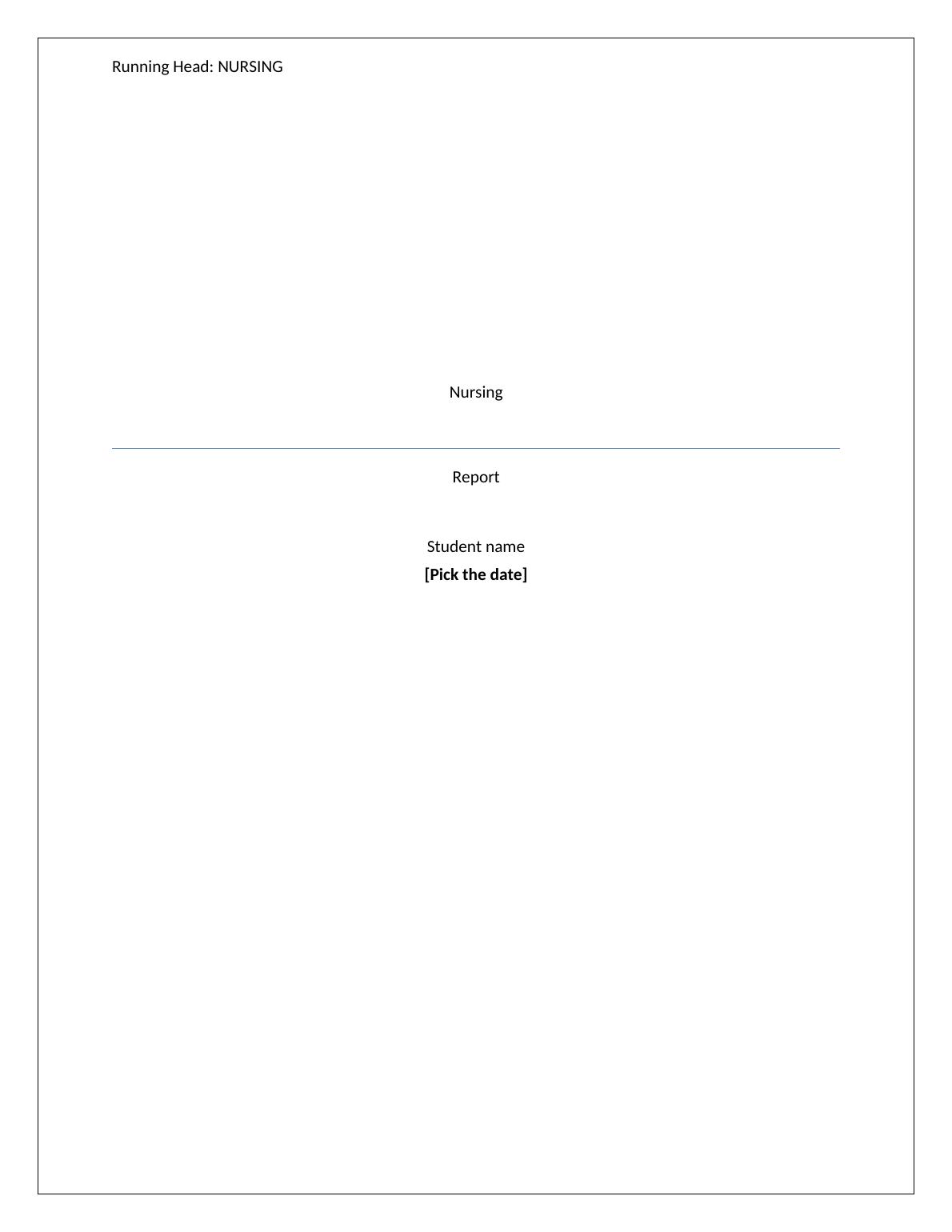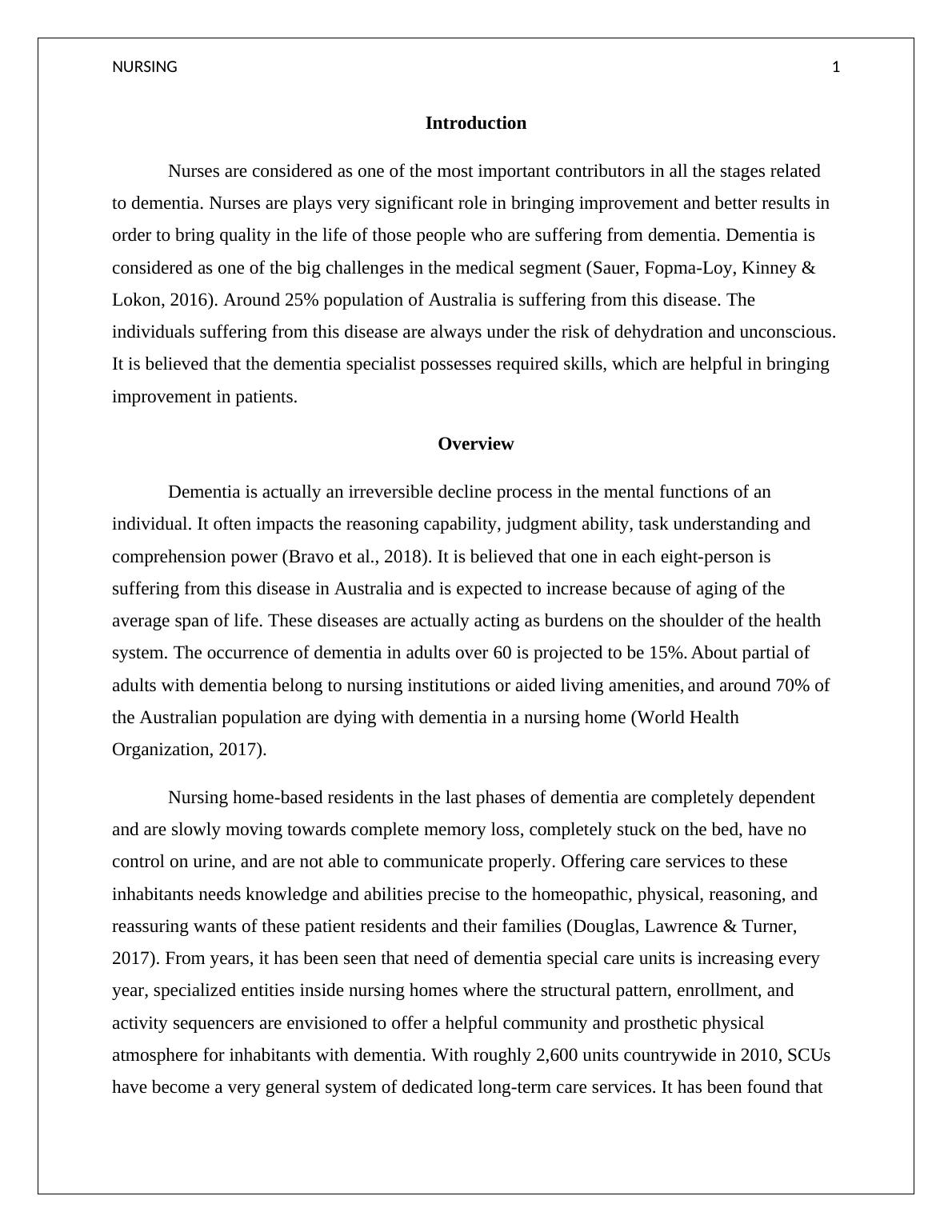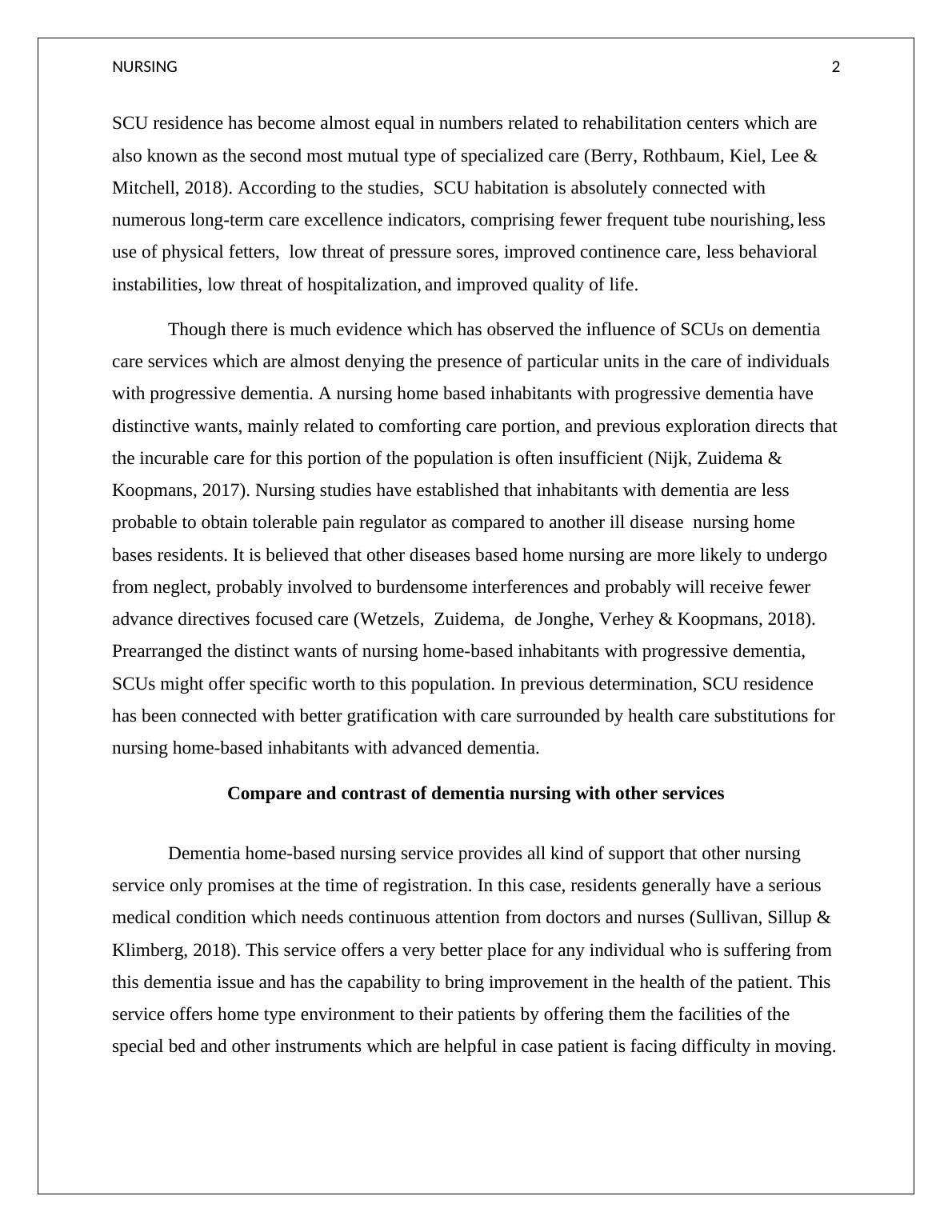Nursing and Dementia: Importance of Specialized Care Units
Discuss the role and responsibilities of the nurse in the nursing home’s dementia unit and compare and contrast it to the similar role of the nurse described in the literature.
6 Pages1674 Words120 Views
Added on 2023-04-23
About This Document
This report discusses the importance of specialized care units for nursing and dementia patients. It highlights the impact of dementia on mental functions and the role of nurses in improving patients' quality of life. The report also provides relevant references and compares dementia nursing with other services.
Nursing and Dementia: Importance of Specialized Care Units
Discuss the role and responsibilities of the nurse in the nursing home’s dementia unit and compare and contrast it to the similar role of the nurse described in the literature.
Added on 2023-04-23
ShareRelated Documents
End of preview
Want to access all the pages? Upload your documents or become a member.
Dementia in Aged Care
|11
|839
|87
Dementia Care Synopsis Overview of Dementia
|7
|2937
|60
Palliative Care in Residential Aged Care: Improving End-of-Life Stage for Aging Australians
|14
|3543
|469
Evidence Based Practice Proposal PDF
|6
|1380
|85
Dementia- Case of Amanda
|3
|953
|67
Treating Dementia Assignment
|7
|1699
|94



